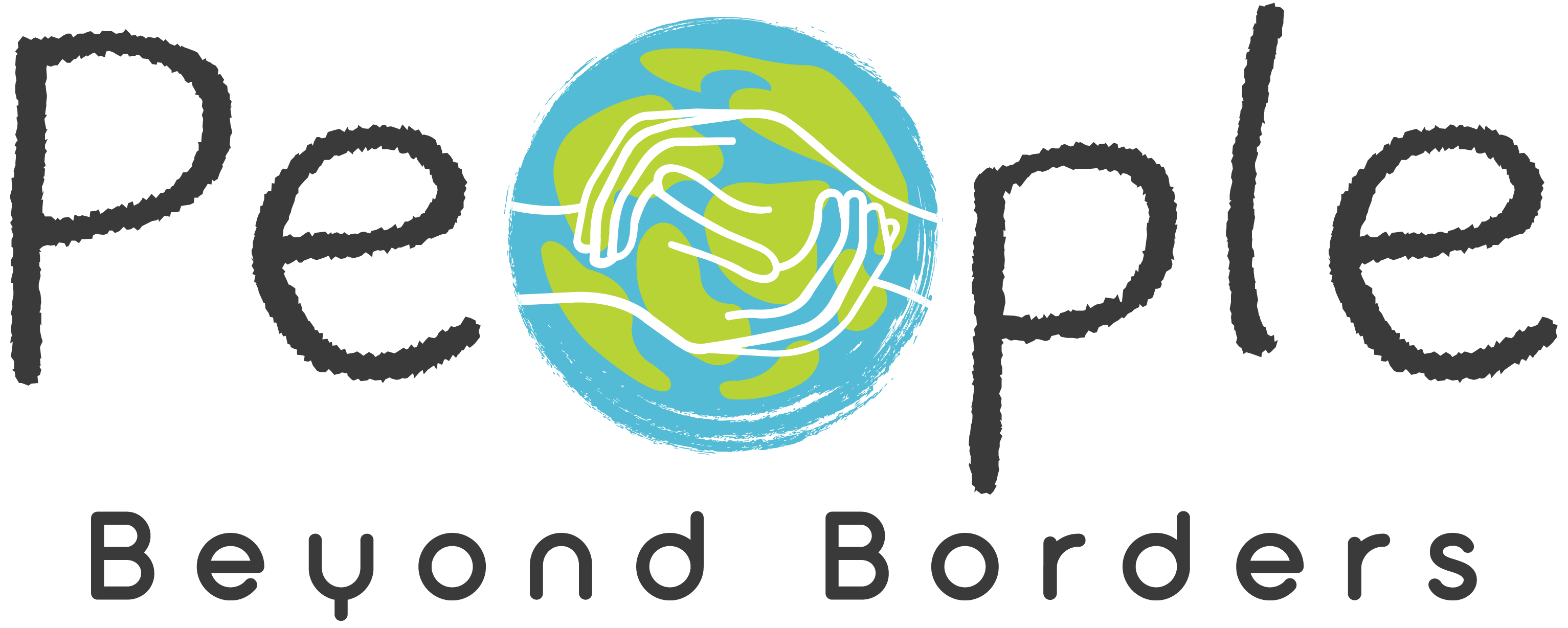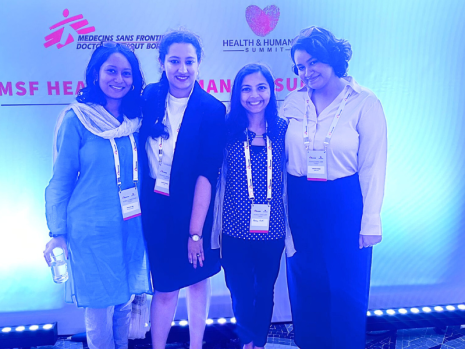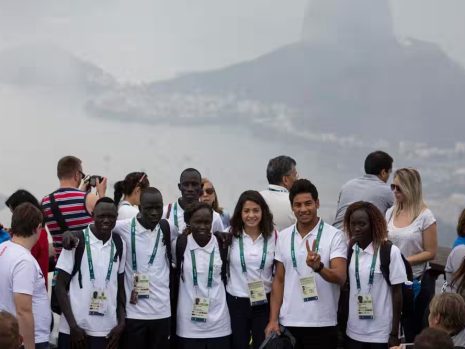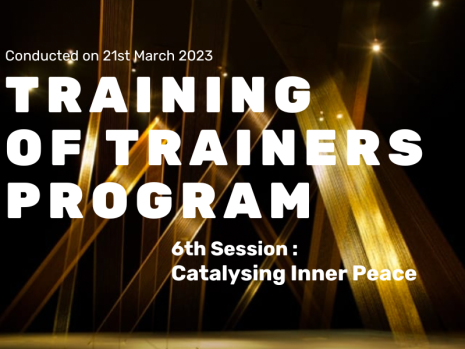This is the first blog in PBB’s human library series. People Beyond Border’s work is rooted in cultural and ethnographic approaches to migration, displacement and the humanitarian sector. Instead of interpreting stories, we seek to really listen to it from the person living it with a hope to un-judge a book by its cover through our human library-styled series.
Bridging cultural barriers is one of the numerous ways conflict transformation is accomplished around the world. However, in today’s advocacy settings, few organizations or individuals are gifted in this approach. PBB had the opportunity to speak with Mhamad Al Haj, a.k.a. Mo, a very empowering & talented Lebanese who has been paving the path in this very subject. Mo offers over ten years of experience in working with community, communication, and project management, as well as a natural sense of passion for his work in peacebuilding.

His most recent role with Search for Common Ground and previously with HelpAge International has given him incredible opportunities to deepen his expertise and build foundations in social cohesion for displaced and marginalized groups. With HelpAge, Mo has been responsible for the implementation of project activities ensuring good quality action and credible outcomes, as well as ensuring timely grant reporting and compliance with contract and donor guidelines in coordination with local partners. Mo has spent more than a third of his life with national, regional, and international entities learning various aspects of project implementation from building relationships and co-planning with national government agencies, parties, and partners to direct engagement and empowerment of old age, PwSN, and youth to manage databases and navigate finance systems and policies.
In his own words he says, “I am genuine in saying that I love every part of it!”
During PBB’s conversation with Mo, we as a team began to critically analyze certain aspects of conflict transformation we otherwise had not thought of. Prerna, the founder of PBB mentioned how conversing with like-minded individuals like Mo, is a huge reason why PBB exists. The very essence of community building relies on the underlying notion of understanding each other’s motivations, goals and passions in life. Our conversation with Mo was exactly that and more!
“It is both a responsibility and privilege to dedicate one’s career to working towards relieving people of stereotypes, prejudices, and conflicts that limit their capacity to grow, but it is this lifestyle that I view as a means towards a fulfilling legacy”. – Mhamad Al Haj, a.k.a. Mo
Mo, who started as a communications and PR professional initially worked on aspects of climate action, community building and then shifted to peacebuilding project management. He mentioned how he has loved every aspect of his job and has been able to experience different cultures in Lebanon.
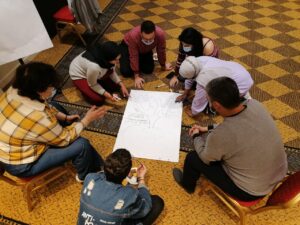
“You can travel from one village to another by foot and experience a completely different culture and this has reflected in many ways communities interact in Lebanon” – Mo
Tackling cultural integration is a long term process that Mo has enabled through collaborative facilitations by finding a common ground between different groups, for example refugees and host communities. More often than not, the right to dignity and seeing each other as “humans” becomes the common ground for many people in countries like Lebanon to establish collaboration within communities.
“It’s like peeling an onion, whenever you peel one side the other side becomes easier to peel”, says Mo on being asked how collaboration can be achieved between refugees and host communities. While there are barriers to collaboration, those barriers need to be tackled one by one so that it trickles down to the root cause.
Approaching the cultural context of collaboration and building communities through cultural heritage is another important aspect that the Project Tourathi aimed to tackle. Tourathi (2017-2019) was a youth-led celebration of Lebanon’s cultural heritage that brought community members together from diverse backgrounds. Many Lebanese friends who were part of this project are now trained to give tours within Lebanese towns and villages. Peacebuilding & conflict transformation, being the central theme, was a major part of introducing champions of this project to tourism and exploring their own cultural heritage and identities. Discovering individual identities could act as an entry point for collaboration and to analyze the key conflicts that affect them the most.

Addressing these issues with a trauma informed lens remains a critical aspect of programmes and projects like these in conflict stricken areas however it is always advised to tackle psychosocial issues with a trained trauma informed therapist onboard.
Team PBB was amazed by the multi-layered aspects of conflict transformation, especially learning how differently state actors and non-state actors perceive it. From a communications perspective, gatekeeping/influencing was another important strategy for conflict transformation that swept the last few minutes of the conversation. Connecting relevant influencers within the community to humanize narratives and instill self-esteem and confidence becomes a huge part of the process.
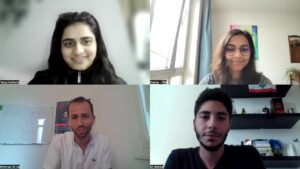
Connecting with Mo also helped us realize how important advocating agency for those in need is, PBB has always advocated the need to transform narratives. Sometimes, the influencer might not be a famous media personality but instead someone who has a shared identity, shared trauma and experiences. It is all about understanding each other deeply rather than fully.
Our conversation with Mo continues over other mediums while we hope to bridge more ideas and insights from our work in Germany and India. We are thankful for his time and resources and would love to share more with our readers.
Below, you can find a list of resources Mo has very kindly put together for our further reading:
- Sure can do: a mini-series produced to celebrate community champions who broke stereotypes and actually succeeded within the boundaries and challenges they faced.
- Let’s talk together: another mini-series produced to talk about the different gender based violence types in communities. Watch Mo’s favorite video here.
- Tourathi – Cultural Heritage Project
Stay tuned for more of our conversations around the world, if you would like to engage with us on a similar level please write to us at team@peoplebeyondborders.org
